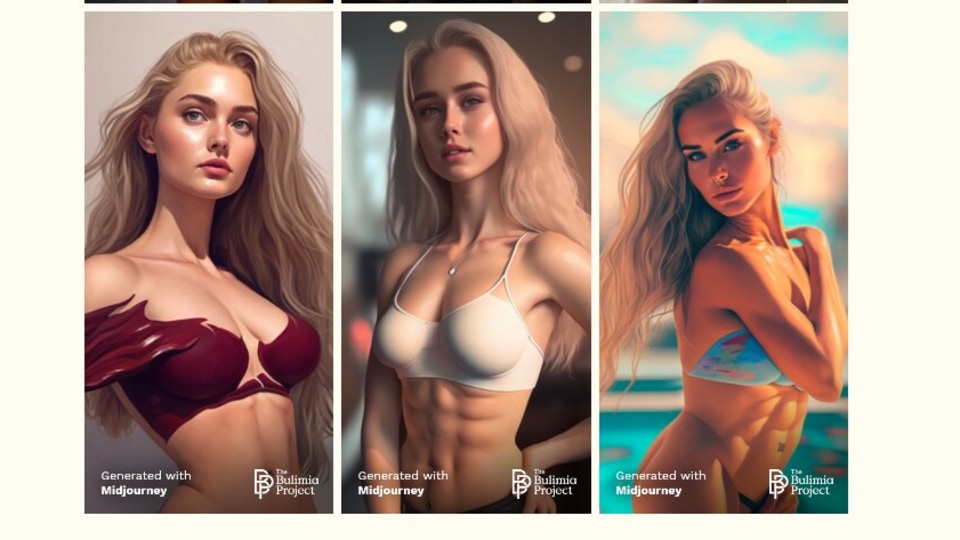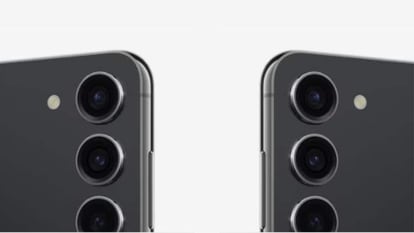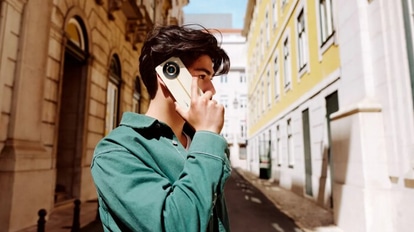5 things about AI you may have missed today: 'Perfect woman', signs of human reasoning in AI and more
AI Roundup: These are the most interesting developments in the world of artificial intelligence that happened today. AI art has created the 'perfect woman’ and 'perfect man’, Microsoft says AI is showing signs of human reasoning and a lot more.

The artificial intelligence (AI) world was rocked after one of the most influential people in the segment, OpenAI founder and ChatGPT creator Sam Altman, made some shocking statements during his first-ever testimony in front of the US Senate. He highlighted the dangers around misuse of the technology, the potential risk of misinformation as well as the fear of job loss if AI is allowed to grow without regulation. But while that has dominated the news cycle, other interesting things have happened today. A group of researchers asked AI to create the image of the 'perfect man' and 'perfect woman', but it has faced criticism from human interest groups. Microsoft has also revealed that its AI has shown the first signs of human reasoning. This and more in our daily AI roundup. Let us take a look.
AI creates the ‘perfect man'
The Bulimia Project has conducted a study where it asked AI to create images of the perfect man and the perfect woman. Image-generating tools such as Dall-E 2, Stable Diffusion, and Midjourney were used for the study. The AI was given a dataset from social media and results found on the World Wide Web to understand the idea of perfect humans.
However, once the images were generated, The Bulimia Project called them “largely unrealistic”. The study has found that the images of women had a bias towards blonde hair, olive skin tone, and brown eyes, whereas, for men, it was biased towards brown hair, brown eyes, and olive skin. Additionally, 40% of the AI-generated images generated body types that were far from realistic for both men and women. Men featured overly muscular body shapes with six-pack abs while the women's images had size zero body proportions.
Microsoft says AI shows human reasoning
According to a report by Deccan Herald, Microsoft's new research highlights groundbreaking insights into AI developing human reasoning. A group of Microsoft researchers asked AI to solve puzzles that required them to have an intuitive knowledge of the real world. The puzzle asked the AI to stack a book, nine eggs, a laptop, a bottle and a nail in a stable manner which it was able to do very easily.
“I started off being very skeptical — and that evolved into a sense of frustration, annoyance, maybe even fear. You think: Where the heck is this coming from?” Peter Lee, who leads research at Microsoft, told Deccan Herald.
Professor fails entire class over fears of AI-generated essays
A professor at a Texas university failed his entire class after ChatGPT scanned the essays and incorrectly told him that the submissions were generated with the help of an AI. The incident was posted on Reddit where the poster explained that the entire class failed once ChatGPT scanned the papers and told the professor that there was a high likelihood that they were not written by humans.
However, it was later proven by the students that the essays were, in fact, written by them and not AI. The professor has since apologized to the students and has agreed to give them another chance to take the test.
The issue has once again highlighted the paranoia generative AI has created in the field of academics.
Amazon Head says “Alexa at the forefront of AI”
In an interview with CNBC, Rohit Prasad, Amazon's senior vice president and head scientist for Alexa, has dismissed the claims that the company has missed out on the early bird advantage on generative AI highlighting “Alexa has been and is at the forefront of AI for a long time. We've been part of the cultural zeitgeist and it hasn't slowed down”.
He also said that unlike ChatGPT, which requires a website-based interface, Alexa was more immersive, intuitive, and instantly available.
Kajol posts AI-generated photo of herself on social media
Bollywood actress Kajol joined the AI trend after she took to Twitter and Instagram to post an AI-processed photo of herself. She captioned it with “AI and me… any guesses who I look like (The answer is in the person who's tagged). There are too many eye rolls and not enough emojis…"
She tagged her and actor-husband Ajay Devgn and daughter Nysa to imply that the AI image made her look like her daughter. She had posted the original photo a week earlier.
Catch all the Latest Tech News, Mobile News, Laptop News, Gaming news, Wearables News , How To News, also keep up with us on Whatsapp channel,Twitter, Facebook, Google News, and Instagram. For our latest videos, subscribe to our YouTube channel.

























